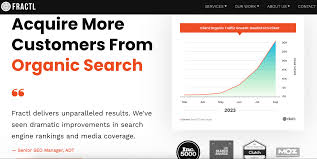The Future of Digital Marketing Skills
In today’s fast-paced digital world, the field of marketing is constantly evolving. With the rise of new technologies and changing consumer behaviors, digital marketers need to stay ahead of the curve by developing and honing their skills for the future.
One key aspect of future-proofing your digital marketing skills is staying up-to-date with the latest trends and tools in the industry. From AI-powered analytics to immersive virtual reality experiences, marketers need to be adaptable and willing to embrace new technologies to reach their target audience effectively.
Another essential skill for digital marketers in the future is data analysis and interpretation. With vast amounts of data being generated every day, marketers must be able to extract valuable insights from this data to make informed decisions and optimize their campaigns for success.
Furthermore, creativity will continue to be a crucial skill for digital marketers in the future. As competition grows fiercer in the digital landscape, marketers need to think outside the box and create engaging content that resonates with their audience on a personal level.
Adaptability and agility are also vital skills for digital marketers as consumer behaviors and technology trends shift rapidly. Marketers must be able to pivot quickly and adjust their strategies accordingly to stay relevant in an ever-changing market.
Overall, the future of digital marketing skills lies in a combination of technical expertise, creativity, data analysis, adaptability, and agility. By continuously learning and evolving with the industry, digital marketers can position themselves for success in an increasingly competitive landscape.
Six Key Advantages of Acquiring Digital Marketing Skills for Future Success
- 1. High demand
- 2. Versatility
- 3. Constant innovation
- 4. Data-driven decision-making
- 5. Creative opportunities
- 6. Remote work possibilities
7 Key Challenges in Mastering Digital Marketing Skills for the Future
- Rapidly changing landscape requires constant skill updates
- Increased competition makes it challenging to stand out
- Risk of information overload with the abundance of data and tools
- Potential for privacy concerns with advanced targeting techniques
- Difficulty in accurately measuring ROI for some digital marketing strategies
- Technical skills required may be intimidating for some marketers
- Digital fatigue among consumers could impact effectiveness of campaigns
1. High demand
The high demand for digital marketing skills is a testament to the growing importance of online presence for businesses. As companies increasingly invest in digital marketing strategies to reach and engage with their target audiences, professionals with expertise in this field are sought after to drive growth and success in the competitive digital landscape. The demand for individuals with digital marketing skills reflects the recognition of the pivotal role that online marketing plays in achieving business objectives and staying ahead in today’s dynamic market environment.
2. Versatility
Digital marketing skills offer a unique advantage in their versatility, as they can be seamlessly applied across diverse industries and job roles. Whether in e-commerce, healthcare, entertainment, or any other sector, the principles of digital marketing remain relevant and adaptable. This flexibility enables professionals to transition between different fields and positions with ease, making digital marketing a valuable asset in today’s dynamic job market.
3. Constant innovation
The field of digital marketing offers a significant advantage in terms of constant innovation. As the industry continues to evolve at a rapid pace, professionals have the opportunity to engage in ongoing learning and development, allowing them to stay ahead of trends and adapt to new technologies. This environment of continual change fosters a culture of growth and exploration, providing digital marketers with the chance to expand their skills and expertise in dynamic ways.
4. Data-driven decision-making
In the realm of digital marketing skillsfuture, a significant advantage lies in the emphasis on data-driven decision-making. By prioritizing data analysis, marketers can gain valuable insights to make informed decisions and optimize their campaigns effectively. This approach not only enhances the efficiency of marketing strategies but also ensures that decisions are based on concrete evidence rather than assumptions, leading to more successful outcomes in the ever-evolving digital landscape.
5. Creative opportunities
Digital marketing skillsfuture offers creative opportunities for marketers to develop engaging content that resonates with target audiences. With the vast array of digital tools and platforms available, marketers have the flexibility to experiment with various formats, visuals, and storytelling techniques to capture the attention of their target demographic. This creative freedom allows for innovative and personalized marketing strategies that can leave a lasting impact on consumers, fostering stronger brand connections and driving successful campaigns in the digital landscape.
6. Remote work possibilities
With digital marketing skills, professionals gain the advantage of remote work possibilities, offering them the flexibility to work from anywhere and collaborate with teams across the globe. This freedom not only enhances work-life balance but also opens up opportunities for diverse collaborations and global networking, ultimately leading to increased productivity and creativity in the digital marketing field.
Rapidly changing landscape requires constant skill updates
In the realm of digital marketing, a significant challenge arises from the rapidly changing landscape that demands constant skill updates. With technology evolving at a breakneck pace and consumer behaviors shifting unpredictably, staying current with the latest trends and tools is essential for success. This ongoing need for skill refinement can be daunting for marketers, requiring them to invest time and resources in continuous learning to ensure their strategies remain effective in an ever-changing digital environment.
Increased competition makes it challenging to stand out
In the evolving landscape of digital marketing, one significant challenge that arises is the intensifying competition, making it increasingly difficult for businesses to differentiate themselves and stand out amidst the noise. With more brands vying for consumers’ attention online, marketers must find innovative ways to capture and retain their target audience’s interest. This heightened competition underscores the importance of honing unique strategies, creating compelling content, and leveraging emerging technologies to carve a distinct niche in the crowded digital space.
Risk of information overload with the abundance of data and tools
In the ever-evolving landscape of digital marketing, one significant con that marketers face regarding future skills is the risk of information overload. With the proliferation of data and a multitude of tools at their disposal, marketers can easily become overwhelmed by the sheer volume of information available. The challenge lies in sifting through this abundance of data to extract meaningful insights and make informed decisions. Without proper strategies in place to manage and prioritize data effectively, marketers may find themselves drowning in a sea of information, hindering their ability to develop targeted and impactful campaigns.
Potential for privacy concerns with advanced targeting techniques
As digital marketing skills evolve to incorporate advanced targeting techniques, a significant con that emerges is the potential for privacy concerns. With the ability to gather and analyze vast amounts of data about individuals’ online behaviors and preferences, marketers may inadvertently infringe upon users’ privacy rights. Advanced targeting techniques can lead to intrusive personalized ads, data breaches, and concerns about how personal information is being used and shared. As digital marketers push the boundaries of targeted advertising, it becomes crucial to strike a balance between effective marketing strategies and respecting users’ privacy boundaries in the digital landscape.
Difficulty in accurately measuring ROI for some digital marketing strategies
Accurately measuring return on investment (ROI) for certain digital marketing strategies poses a significant challenge in the ever-evolving landscape of digital marketing skills. With the complexity of multi-channel campaigns and the intricacies of tracking user interactions across various platforms, determining the exact impact and effectiveness of certain strategies can be elusive. This lack of precise measurement can hinder marketers’ ability to allocate resources effectively and optimize their campaigns for maximum results. As digital marketing continues to advance, finding innovative solutions to address this con and improve ROI measurement accuracy will be essential for success in the future.
Technical skills required may be intimidating for some marketers
One of the potential drawbacks of the evolving landscape in digital marketing is that the technical skills required can be daunting for some professionals. As digital marketing becomes more sophisticated, it entails a steep learning curve that encompasses a variety of complex tools and methodologies. From mastering search engine algorithms to navigating data analytics software, the depth and breadth of technical knowledge needed can overwhelm marketers who are more accustomed to traditional marketing practices. This intimidation factor could lead to a hesitancy to fully embrace digital strategies or could result in a skills gap within marketing teams, ultimately hindering their ability to execute effective digital campaigns and stay competitive in an increasingly technology-driven marketplace.
Digital fatigue among consumers could impact effectiveness of campaigns
In the ever-evolving landscape of digital marketing, one significant con that looms on the horizon is the rise of digital fatigue among consumers. With an overwhelming amount of content bombarding individuals on various online platforms, there is a risk that consumers may become desensitized or disengaged from marketing campaigns. This potential saturation of digital information could diminish the effectiveness of marketing efforts, making it increasingly challenging for brands to capture and retain the attention of their target audience amidst the noise of the digital world. Marketers must be mindful of this growing concern and find innovative ways to combat digital fatigue in order to ensure their campaigns remain impactful and relevant in the future.




